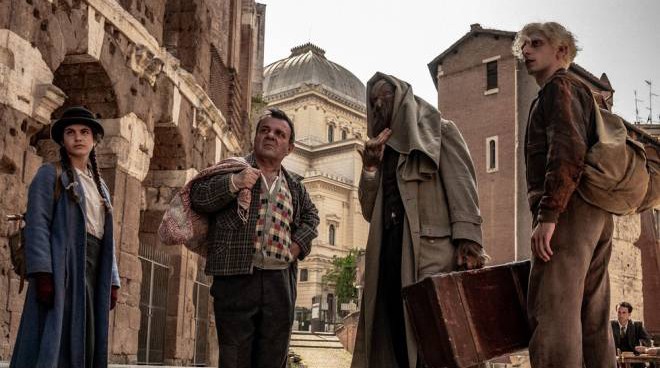The Power of the Dog
Jane Campion’s return to cinema after 12 years of hiatus makes for a perfect diptych together with her classic masterwork The Piano, but in many ways, it is even better.
The Thomas Savage
novel that serves as source employs topics and inter-character
relationships that fit very well in Campion’s cinema: an uneasy
anti-triangle between a newly married couple and a third man, the
presence of the woman’s son from a previous marriage, fragile
masculinity, a prominence of non-communication and of implicit
meanings… in many ways it bears strong resemblance with The
Piano. At the same time, The
Power of the Dog is very
different. If The Piano employs many of the classic '90s cinematic tropes bound to the novel of manners adaptations (such as Ang Lee's Sense and Senibility or Zeffirelli's Jane Eyre), The Power of the Dog has no such limitations. A very palpable difference can be detected throught the two filmscores: Michael Nyman's rather conventional filmscore for The Piano pales if compared to Johnny Greenwood's less typical score for this film.
Set
in the 1920s in Montana (a setting that will be visited next year by
Martin Scorsese in Killers of the Flower Moon), the film employs
a classic western setting, yet is far from the average western. In an
atypical fashion it feels like a novel of manners, centered on the
difficult relations between characters. A genre that is often deemed
as decaying and outdated is thus refreshened by a sweet new take. Not
to mention the beauty of the setting and the production design by
Grant Major, the ever presence in indoor scenes of windows that open
up to the vast plains that surround the setting.
It
is hard to pinpoint a protagonist in this film, but if there is one,
it is most likely the very antagonist of the story, Benedict
Cumberbatch’s character. Around him and his distrust in his
brother’s wife, as well as her teenage son, is the plot centered.
He is a fragile masculine character, who hides his fears and
weaknesses under a shroud of toughness. Campion’s cinema has often
focused on male characters, favouring images of gentler male
characters (as is the case with Jesse
Plemons’ character) and on female characters affected by the
fragility of men (in this case, Kirsten Dunst’s character).
Despite
being a slow burn film by definition, The Power of the Dog
never bores. The implicit
nature of events, the ever presence of a subtext that must be
interpreted to the actions makes for a very engaging and active
viewing experience.
A
true masterpiece among the Netflix produced auteur films, and one of
the better films of the year, it is rather disappointing that it has
not received more acclaim or awards. This film too belongs to the
group of masterpieces such as Spencer, The Hand of God or
The Card Counter that
competed at Venice for the Golden Lion and were inexplicably bested
by a less masterful film. Hopefully, time will give The
Power of the Dog justice.



Comments
Post a Comment